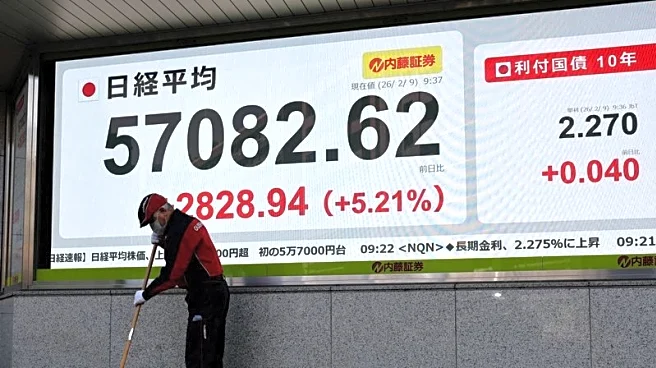Rapid Read • 8 min read
El Salvador has enacted a new Investment Banking Law that authorizes investment banks to manage Bitcoin and digital assets, marking a significant shift in the country's financial landscape. This law, effective August 2025, allows investment banks to offer services such as deposits, lending, and investments in Bitcoin to sophisticated investors. The initiative is led by President Nayib Bukele and Juan Carlos Reyes of the Commission of Digital Assets (CNAD), who have been pivotal in advancing El Salvador's Bitcoin strategy since its adoption as legal tender in 2021. The law aims to position El Salvador as a leader in digital asset integration, attracting international capital and differentiating it from regional neighbors.
AD
The legalization of Bitcoin investment banks in El Salvador is a strategic move that could influence broader Latin American financial markets to consider similar digital asset integration strategies. This development reinforces El Salvador's position as a crypto-friendly jurisdiction, potentially attracting international investors and capital. However, the decision has drawn scrutiny from the International Monetary Fund (IMF), which has raised concerns about economic stability risks associated with Bitcoin adoption. Despite these concerns, El Salvador has secured a $120 million disbursement from the IMF as part of a larger $1.3 billion lending agreement, indicating a nuanced negotiation to continue its Bitcoin-based economic strategy.
The establishment of regulated Bitcoin investment banks follows earlier discussions about creating a 'Bitcoin city' and expanding mining operations. These initiatives reflect a broader vision to leverage Bitcoin as a stabilizing force in a region historically affected by inflationary pressures. The success of this initiative will depend on factors such as the stability of the Bitcoin market, the effectiveness of the regulatory framework, and participation from local and global investors. This move could set a precedent for national banking systems incorporating cryptocurrencies, particularly in emerging economies seeking innovative financial solutions.
El Salvador's approach to integrating Bitcoin into its financial system highlights potential ethical and economic implications. The country's reliance on digital assets as a hedge against economic volatility raises questions about the long-term stability and sustainability of such strategies. Additionally, the regulatory framework's effectiveness in managing risks associated with cryptocurrency investments will be crucial in determining the initiative's success. The broader impact on Latin American financial markets and the potential shift towards digital asset integration could redefine regional economic strategies.
AD
More Stories You Might Enjoy












